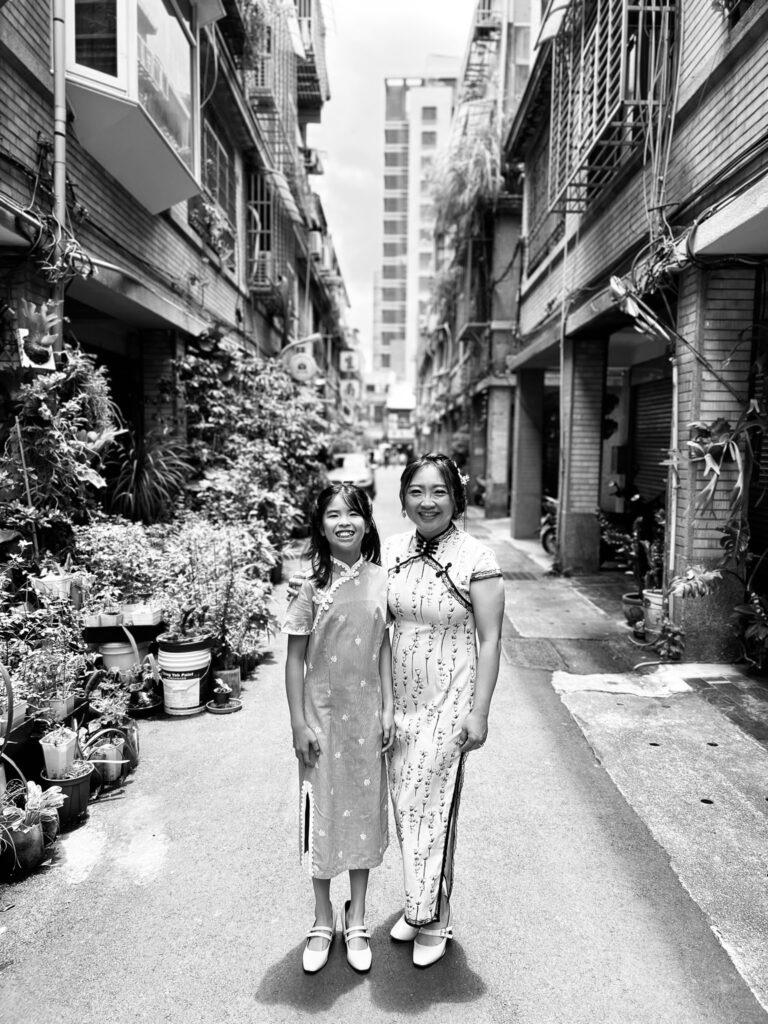Guest Post by Amy Hsiao
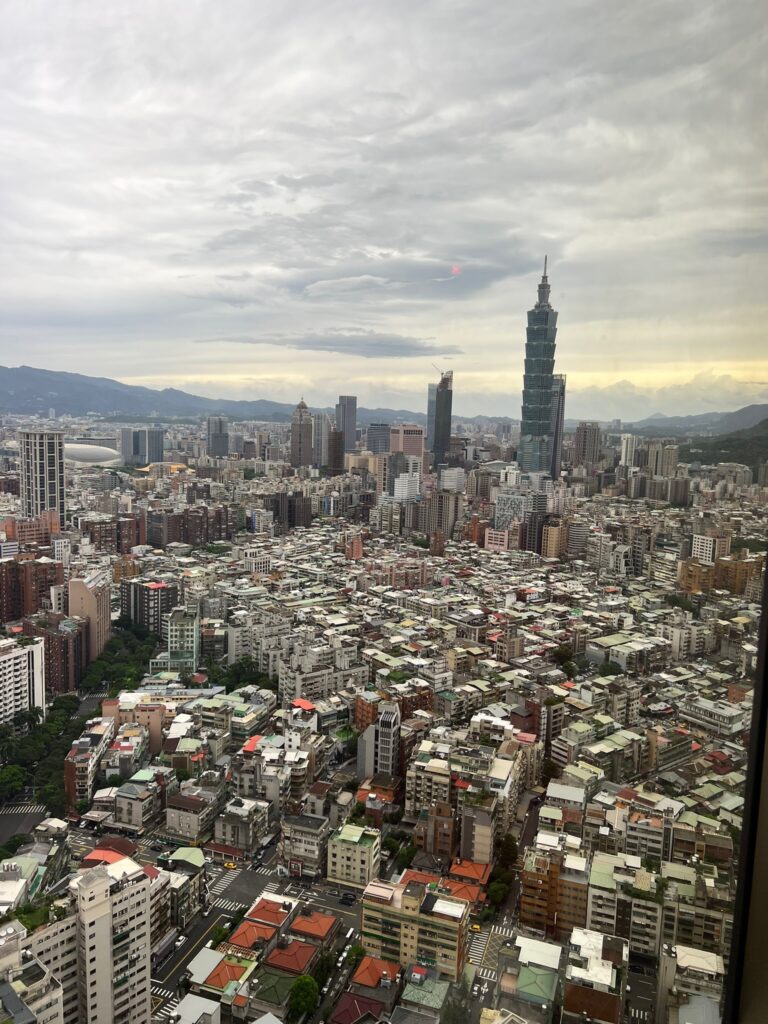
Meet Amy Hsiao
Amy Hsiao is originally from Taiwan and currently lives in San Diego, CA. Amy has lived domestically in San Francisco, Oakland, New York, Chicago, Cincinnati, as well as internationally in Taiwan, Japan and Singapore. She currently works as the Head of Marketing for California-based olive oil company, Corto Olive Co., where she gets to live her life-long dream as a passionate foodie working with elevated food and collaborating with inspiring chefs. She loves exploring the culinary adventures of the world (latest being Mexico City, up next is Costa Rica) and has been making the annual journey to see family in Taiwan with her 12-year-old daughter ever since her child was born.
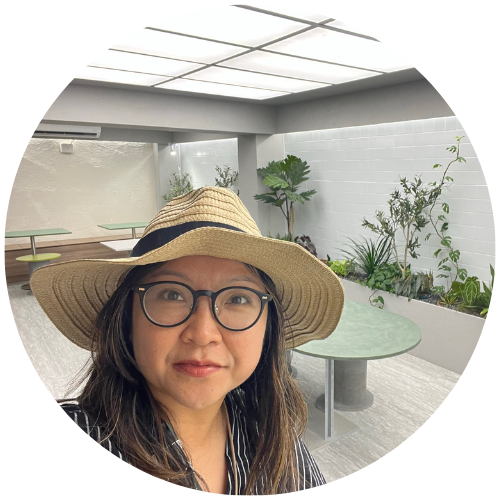
Q: What are your favorite places to travel to in the world?
A: Taiwan, Japan, New York, Denmark and Iceland – all great for travelling with a young child!
Q: What are your favorite travel tips or hacks?
A: Always crowd source with travel-savvy friends for their top 3 “can’t-miss” favorites of my travel destination they have been to. And get a massage upon landing at your destination!

Q&A GUEST POST with Amy Hsiao: Taiwan 🇹🇼
Q: Can you provide a brief overview of Taiwan and highlight why it is so great to visit?
A: Taiwan is an island of incredible food (national hobby in Taiwan is eating and the National Palace Museum is known for its beautiful pieces of pork belly and cabbage in jade! Check out James-Beard-nominated cookbook Made In Taiwan!), very friendly people, affordable yet amazingly elevated experiences, easy transportation in the cities, diverse and beautiful landscape – all packaged into one! It is still under the radar for most travelers in the world, which makes the travel experience very authentic, even though native Taiwanese commonly speak English. I mean – where else in the world can you get a $3 Michelin-starred meal? It is also a country of democracy despite the threat from China to reclaim the island as its own.
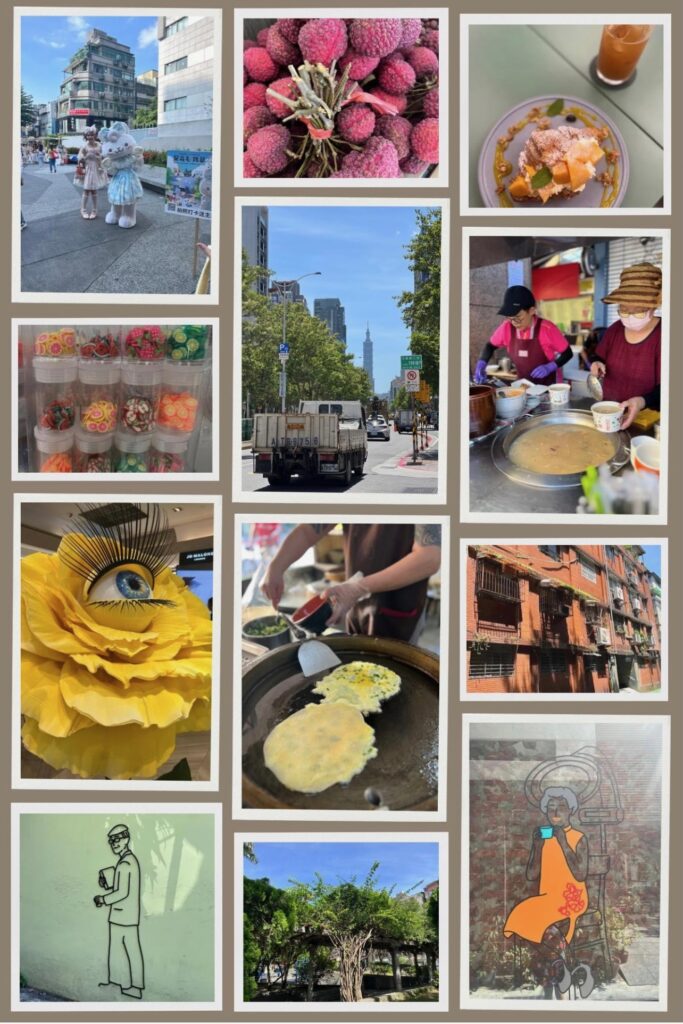
Q: How many days should you plan to visit Taiwan to truly experience the city, food and culture?
A: It will be difficult to see everything, but I recommend 7-10 days especially if you leave the capital of Taipei.
Q: When is the best time of year to visit? What is the weather like then?
A: Summers in Taiwan are very hot and humid even if the mangoes (and all the shaved ice) make it worth the trip (like it is for my daughter). For most travelers, autumn is the best time as it is very temperate and pleasant, between 74-79 degrees.
Q: What should you not forget to pack when visiting Taiwan?
A: An eye mask to help with sleep given the 16 hour time difference vs. California.
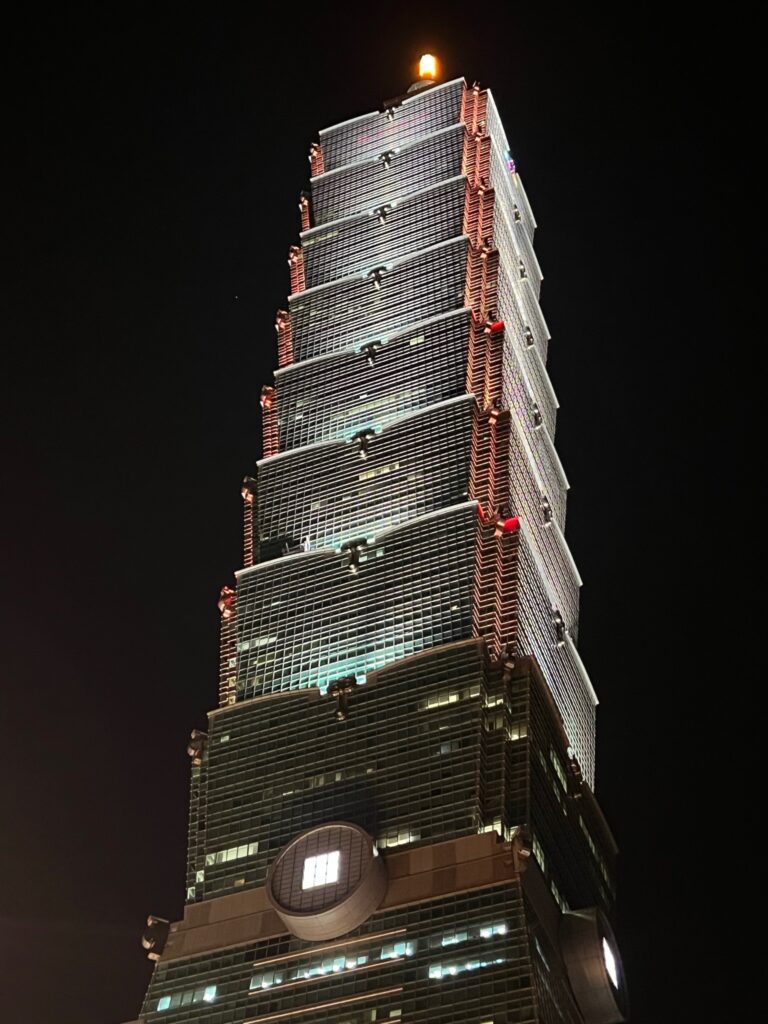
Q: What is the best airport to fly in/out out of? Any specific airport tips?
A: Taoyuan International Airport. Make sure to get the Taiwan lottery, “Taiwan the Lucky Land” for a chance to win up to $150+ USD! The Taiwanese love the idea of being lucky and the government is very generous with the prize giving!
Q: After arriving at the airport, is it best to take a taxi to your destination? Rent a car? Take public transportation? Do they have rideshare services (like Uber) in Taiwan?
A: Taxis are extremely convenient, clean, cheap and safe and can take you to wherever you want to go. Public transportation like buses and high speed railways are also widely available, as is Uber.
Q: What are the main cities in Taiwan?
A: Taipei (pei = North) is the main capital, where the latest trends are, in the Northern part of the country. Tainan (nan = South) is in the South and is full of traditional culture as it is the oldest city on the island. Taichung (chung = middle) is in the middle of the country, second largest city in the country, and is also where the world-wide popular boba drinks originated back in 1986. Hualien on the East side has beautiful mountainous terrain.
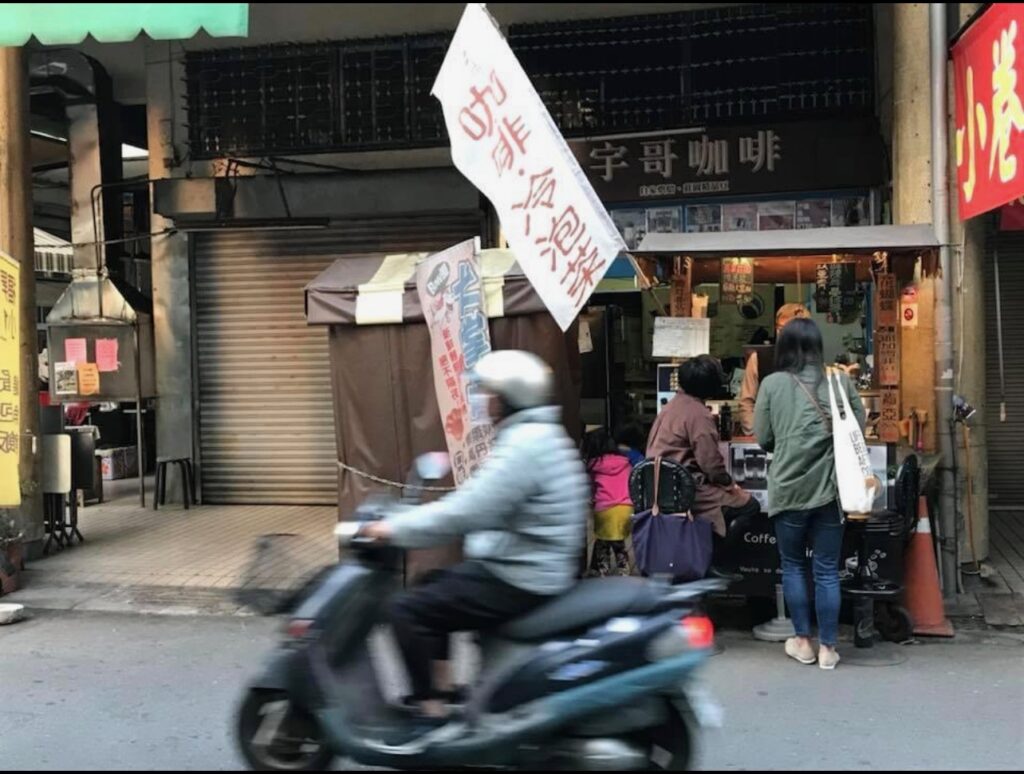
Q: What are the best cities/towns/areas to stay in Taiwan? What hotels do you recommend?
A: Da’an District in Taipei has traditionally been a very popular destination for visitors given its beautiful park and upscale shopping. Hipster area Zhongshan has in recent years become a very popular destination for the local Taiwanese with coffee shops, boutiques and second-hand stores, plus easy walking access to very charming old neighborhoods like Dadaocheng.
For those looking for comfortable hotels in Taipei, consider Shangri-La Far Eastern Hotel with a roof top pool perfect for summer travel or Eslite Hotel), in Hualien (Silks Place Taroko), and in Tainan (Silks Place Tainan).
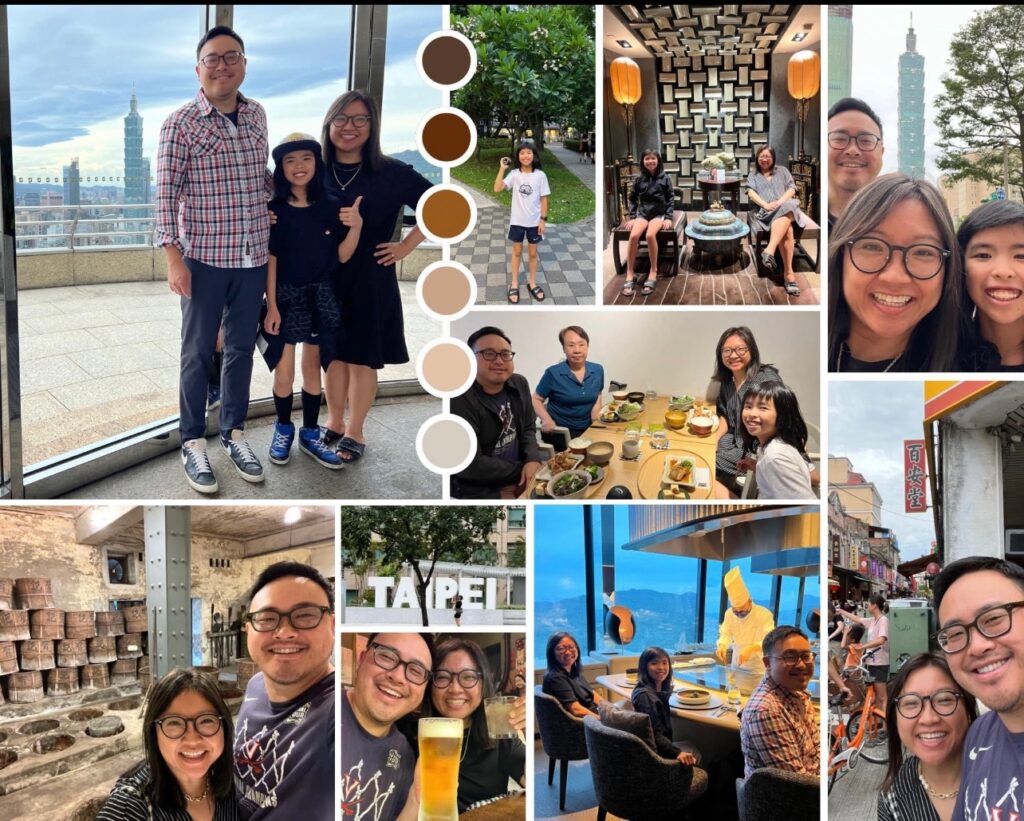
Q: Is Taiwan kid-friendly?
A: Very kid-friendly. The Taiwanese love children. The resorts have amazing amenities for children, from cars perfect for toddlers to drive around hotel (my 12 year old still talks about it!) to movie theaters and arcades.
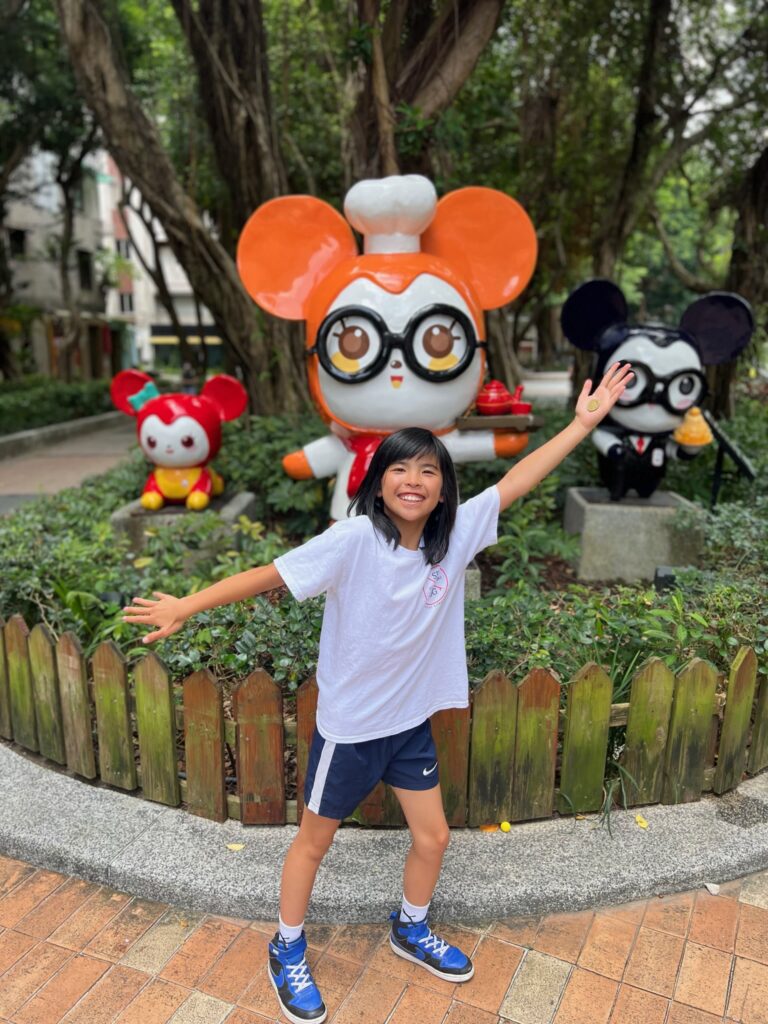
Q: What are some must-visit sites in Taiwan?
A: I love exploring the different parts of Taipei, with new off-the-beaten path discoveries each time I visit. For first time travelers, some can’t-misses include: National Palace Museum, Chiang-Kai-Shek Memorial Hall, the town of Jiufen (where some say inspired the famous Japanese animation movie, Spirited Away), Taroko National Park, and Alishan National Forest (where the train was written up recently in the NY Times).
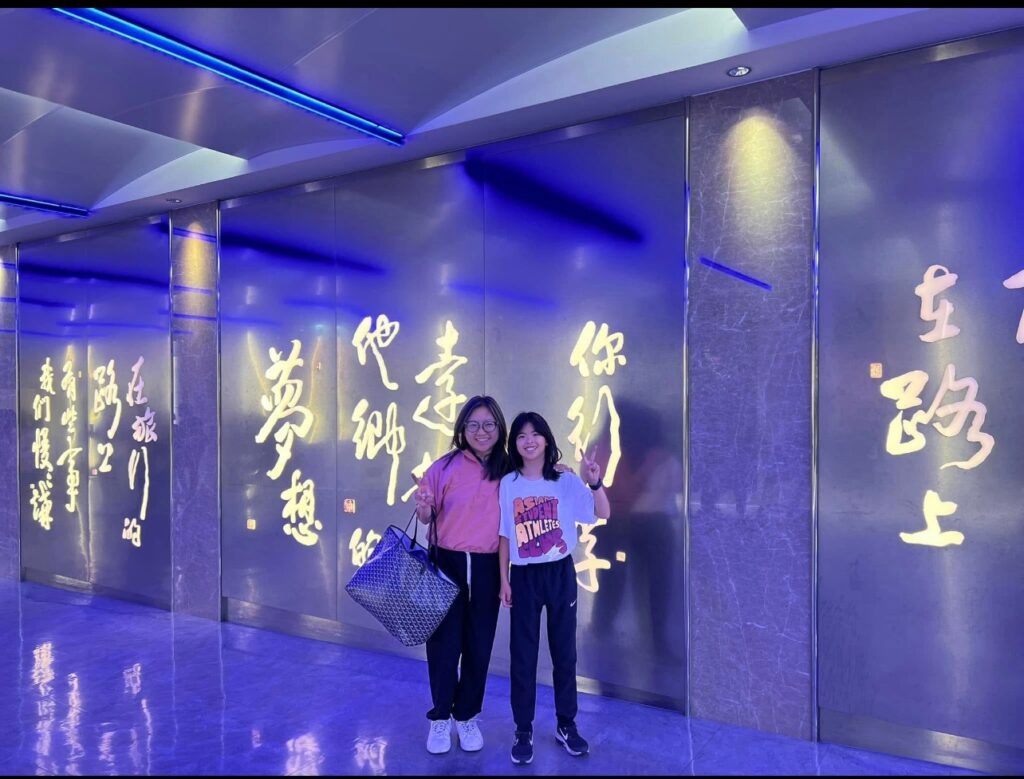
Q: What are some must-do activities/unique experiences to do while in Taiwan?
A: Night markets where truly delicious street foods abound, hot spring soak in Beitou, hike up Elephant Mountain, go up the Taipei 101 building (world’s tallest energy efficient building), send a “sky lantern” and its wishes in Pingxi (like on the Bachelorette show), get a massage at one of the 24-hour massage resorts, read books (while jetlagged!) at the 24 hour Eslite book store, get a Taiwanese “hair wash” which is always done with an amazing complimentary scalp massage, eat a traditional Taiwanese breakfast and honestly, explore the incredible culinary delights Taipei has to offer. And take a cooking class with either CookInn Taiwan (newly published cookbook, Taste Taiwan, available on Amazon) or with Ivy Chen (cooking experience or market tour), co-author of James Beard-nominated cookbook, Made in Taiwan.
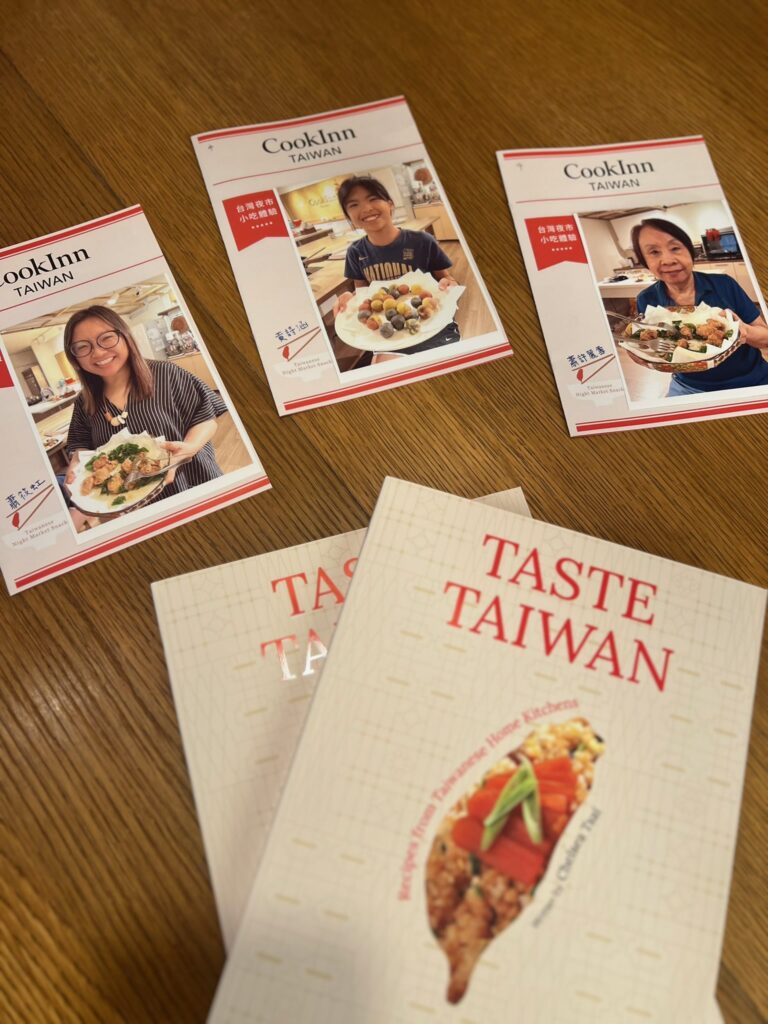
Q: What’s the Arts scene like in Taiwan?
A: Very vibrant. Cloud gate is a must-visit. There are lots of festivals happening all the time so be sure to check local publications for the latest news. “Creative parks” have been established to ensure the development of the arts and cultivation of the artisans in the country with two must-visits in Taipei, Huashan 1914 Creative Park, and Songshan Cultural and Creative Park.
Q: What’s the sports scene like in Taiwan? What are some popular recreational activities?
A: Catching a baseball game is an experience in Taiwan if you can – you’ll learn the power of organization and the values of “group work!” Badminton and ping pong are also popular activities with local gyms providing support programs for those interested. I hired a private badminton coach for my family of 3 last summer through the local gym and we had a blast taking daily lessons for 2 weeks from a coach who was on the national badminton team!
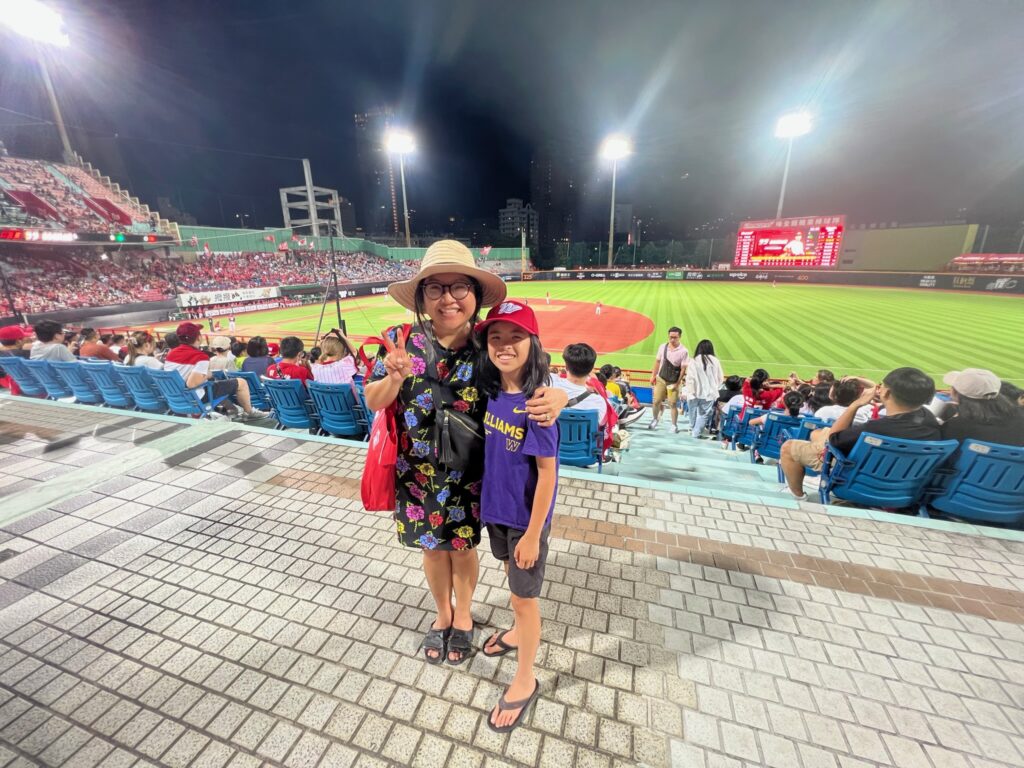
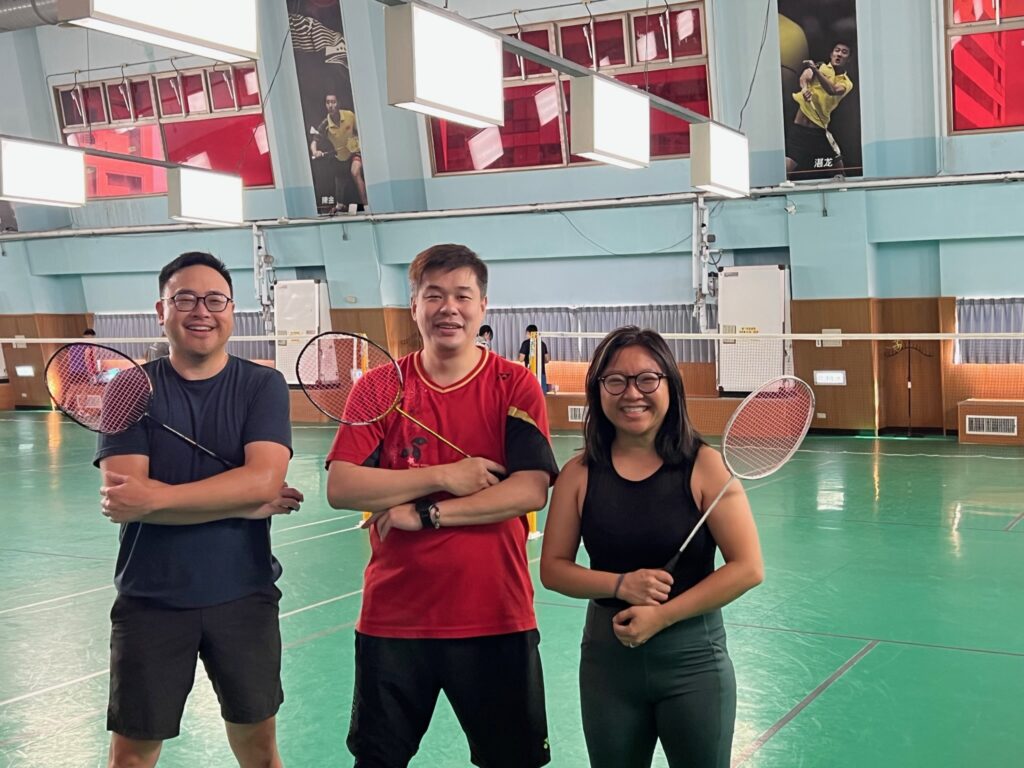
Q: Where can you find the best shopping in Taiwan? Where can you find unique, artisan goods and clothes?
A: Huashan 1914 Creative Park and Songshan Cultural and Creative Park are perfect for unique, artisan goods. Eslite is a book store-turned-department store with locations all over Taipei that has done an amazing job curating elevated experiences (from leather-goods making to glass blowing) as well as showcasing Taiwanese local talent. Yongkang street is a great area to hit up a variety of tea shops, souvenir stores, among other great eats.
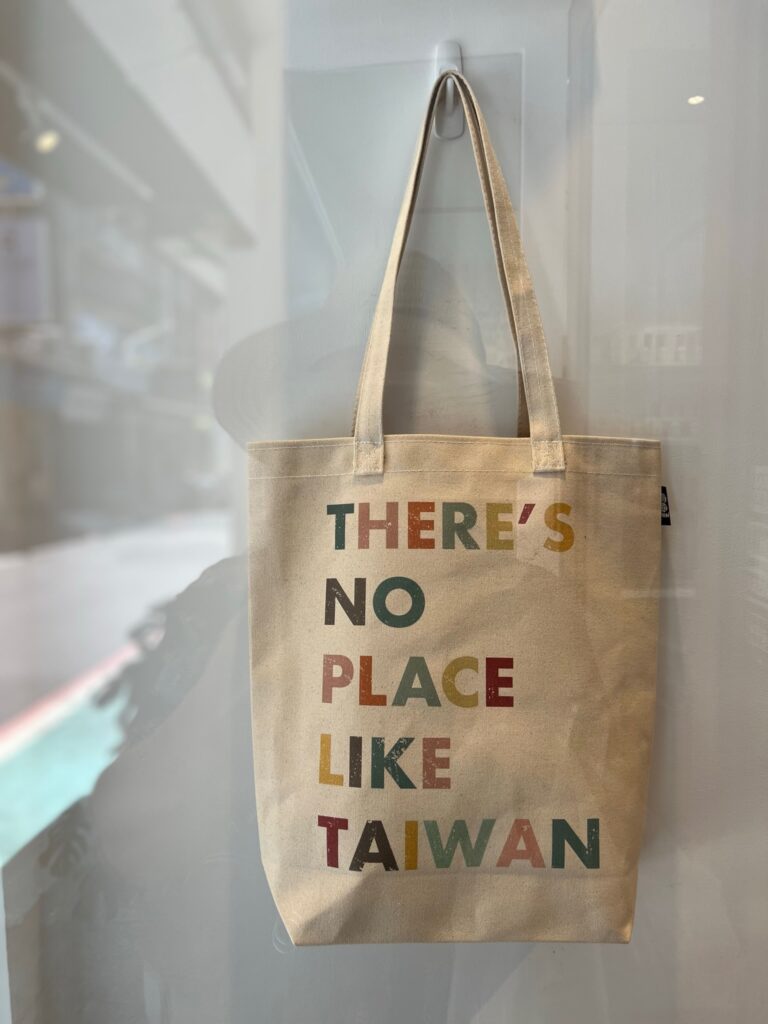
Q: Let’s talk food! Tell me about the food scene in Taiwan. What are some must-eat dishes? Best places to find street food? What are some restaurants not to be missed?
A: The national dish of Taiwan is beef noodle soup and competitions are held to find the BEST of its version and should not be missed. The Taiwanese truly take their food seriously. Restaurants with mediocre food do not survive in Taiwan. The running joke is to “follow the line” because the Taiwanese do not hesitate to line up and wait for good food. The restaurant chain Din Tai Fung, which has taken the world by storm with their soup dumplings, is from Taiwan, as are boba milk teas. You should visit the OG Din Tai Fung if you visit Taiwan and marvel at how it evolved from a hole-in-the-wall to the fancy locations around the world including Las Vegas and Manhattan. Night markets like Raohe, Shilin, and Ningxia Night Market are must-do’s when visiting Taiwan, each with their distinctive dishes and vibes, but all with classic street foods like stinky-tofu (that’s delicious when eaten), oyster omelette, braised pork rice, oyster vermicelli, Taiwanese fried chicken, etc. Eat a tea egg (hard boiled eggs cooked in tea leaves stew for hours) at a convenience store (convenience stores are sooo fun to visit and eat at!). Visit Longshan Temple and eat the stall food by the temples for a unique experience. Fine dining options are endless in Taiwan, and at a fraction of the cost in the United States. One such example is Raw, by chef Andre Chiang, Taiwan’s first michelin-starred chef (watch his documentary on Netflix). Department stores are a wealth of culinary delights, from basement food courts (great with children and travelling with large groups) to high end restaurants in the upper floors and tea salons. A popular spot I like to take visiting friends who enjoy seafood is Addiction Aquatic Development. Make sure to stop by Sunny Hills nearby via a quick taxi-ride for their free(!!) cup of tea served with a whole piece of delicious pineapple cake. A few packages of their pineapple cake as souvenirs to bring home is a must, especially since they cost 2-3x as much on Amazon.
Note: The battle of the pineapple cake is fierce with various brands claiming their “best” title and I most definitely have my strong opinion here expressed. 🙂
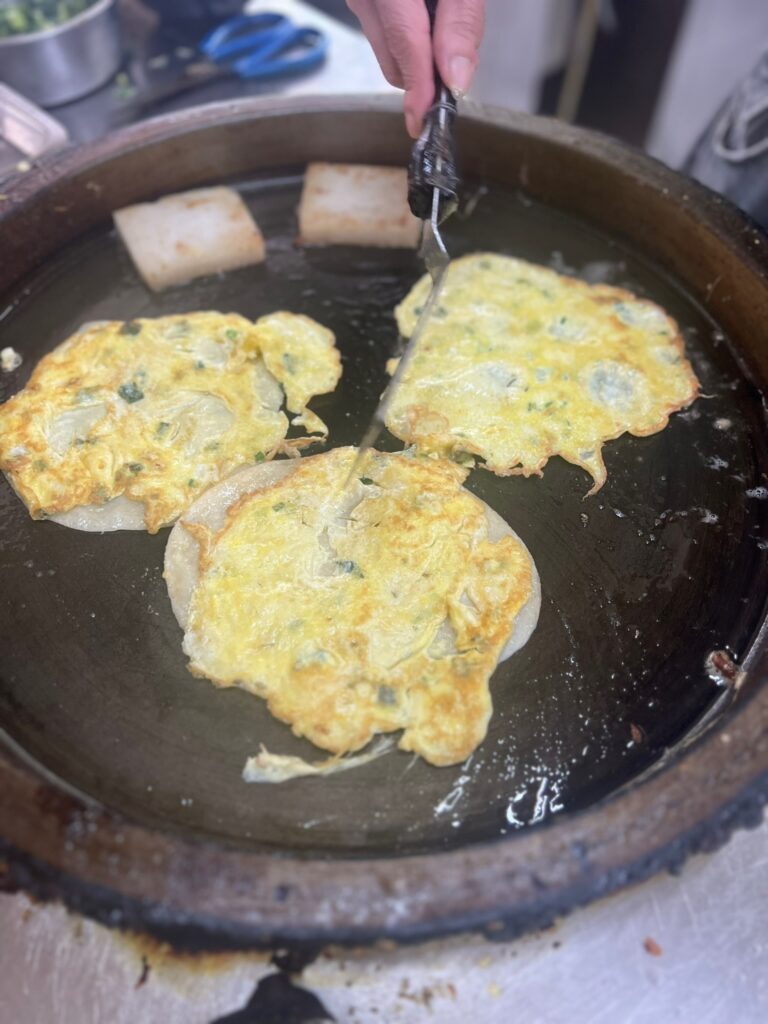
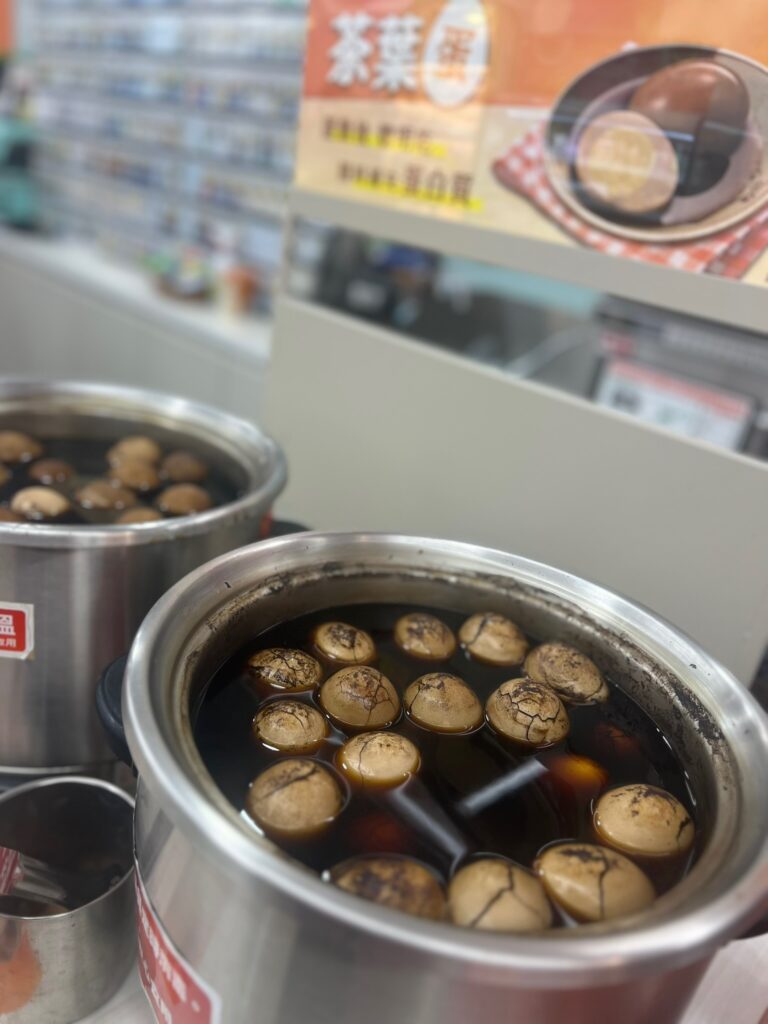
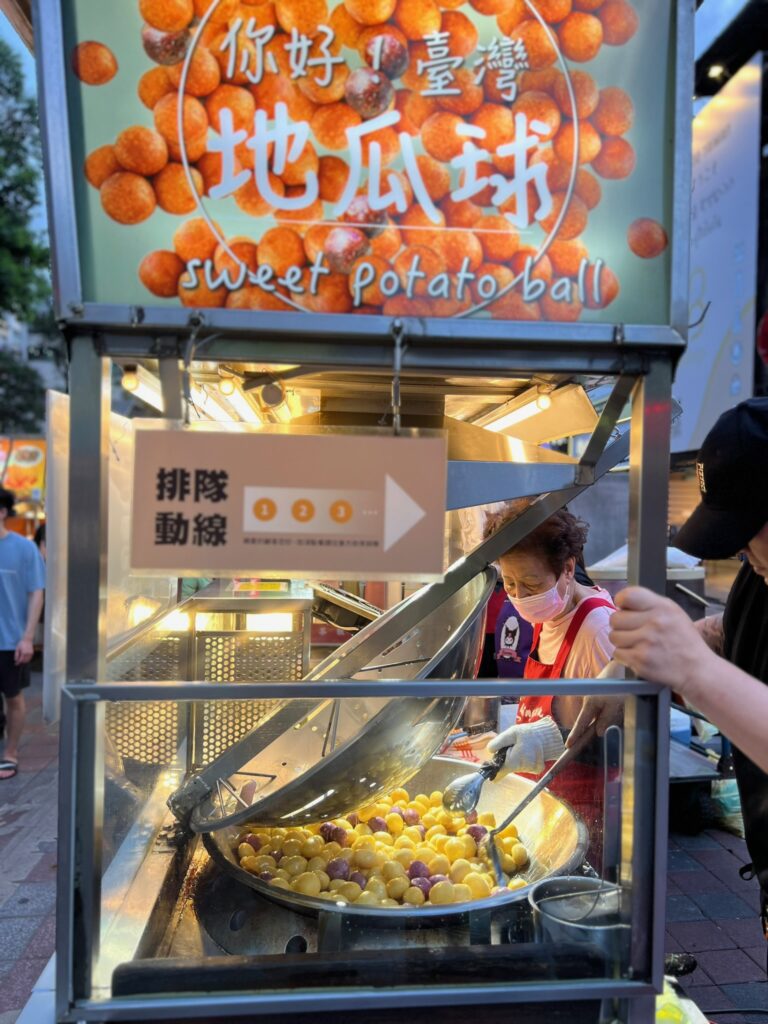
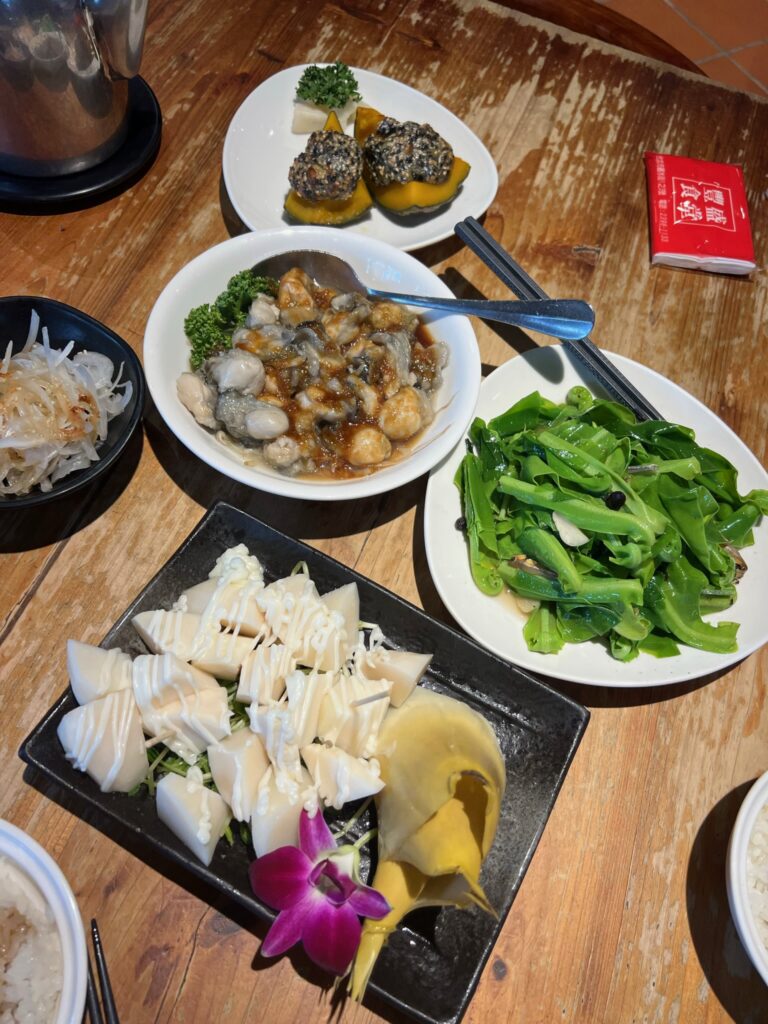
Q: Tell me about the coffee, tea and breakfast scene in Taiwan. What do people typically enjoy?
A: Traditional breakfast is a carb feast, including fried dough (a.k.a. twisted cruller or you tiao) inside sesame baked wheat cake (shao bing), with a side of egg or rice roll (fan tuan), all washed down with a cup of soy bean milk. Go to Fuhang Soy Milk and wait in line – it’s always long no matter what time of the day but I promise it moves fast. Yong He Soy Milk is a classic as well with locations all across the country. Taiwanese tea drinking is an art, a culture, and a life of its own that has to be experienced. Taiwanese oolong (semi-fermented) tea is often considered some of the best in the world by professional tea masters. Stop by Dadaocheng, a fascinating area with both the old and the new, with numerous tea shops, and get lost in (or awakened by!) the world of tea. Despite the long tea-drinking tradition for this tea-growing country, coffee has experienced tremendous growth especially among the young generation with tons of hipster and hand-crafted coffee shops popping up in the last decade. Check out Zhongshan district for hipster, no-named coffee shops and be prepared for your mind to be blown. When I visited in summer of 2023, coffee with lime was all the rage with various versions of experimental coffee drinks served all across town.
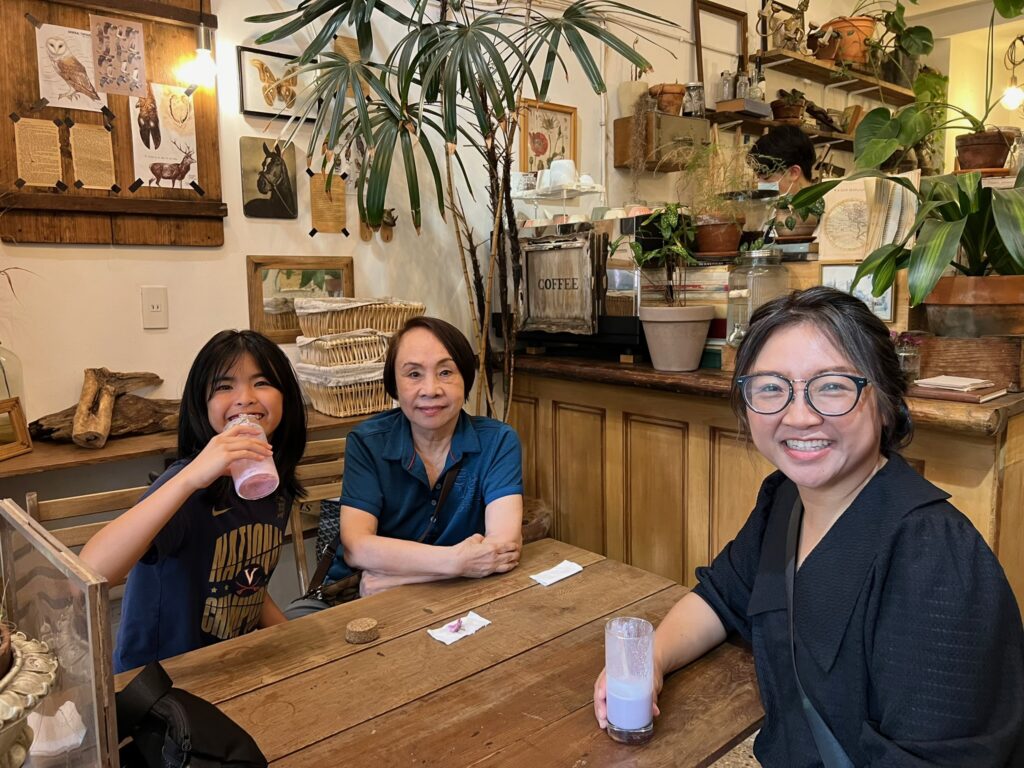
Q: Where can you find the best bars in Taiwan? Any specific recommendations? What do people mainly drink?
A: Pubs are very popular, with its own pub food culture, as it also goes perfectly with the karaoke-loving population. I don’t personally drink much but my husband enjoys Mikkeller Taipei, Taiwan Beer, as well as recommends the Kavalan Distillery tour for whisky lovers.
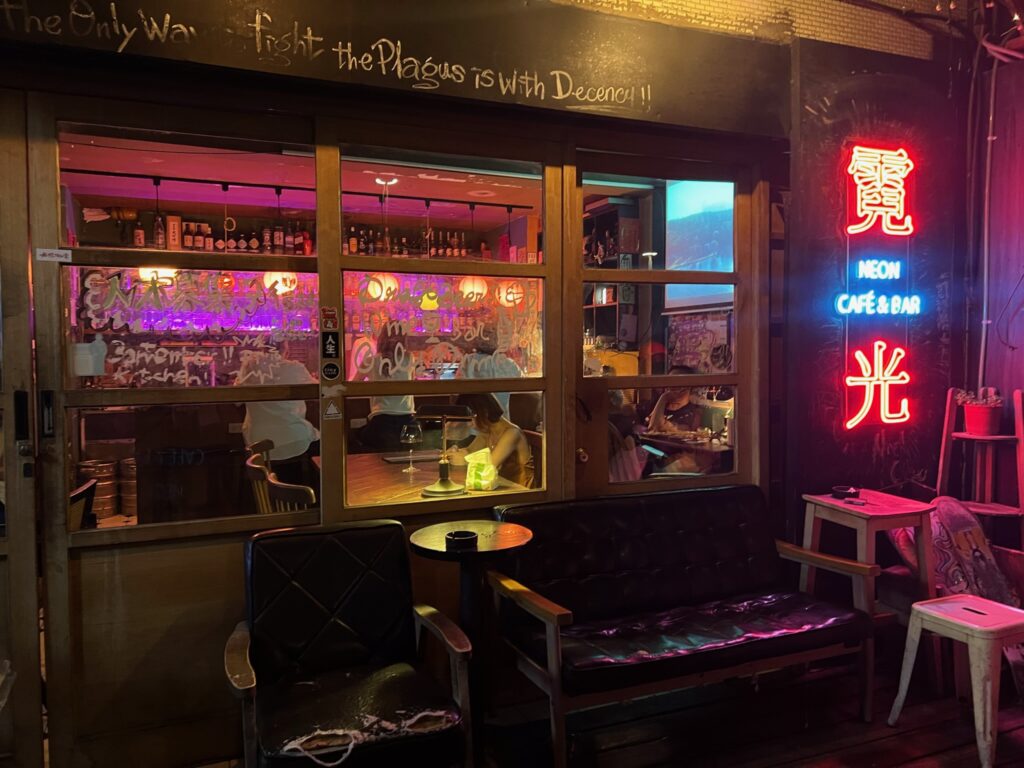
Q: Any additional recommendations or tips about traveling to Taiwan that you’d like to share?
A: Taiwan is no longer the secret it once was. Get in on the action before the world does. The New York Times already let it out so it won’t be long before crowds of tourists get there!
